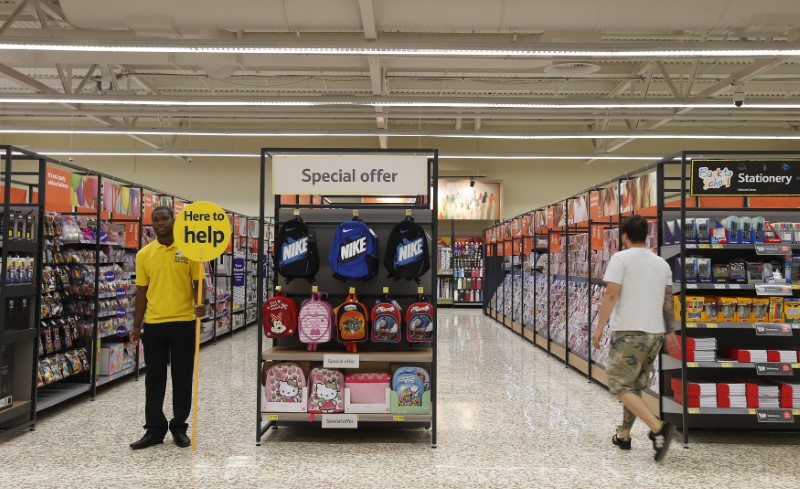LONDON (Reuters) - British households felt their living costs rose at the fastest pace in nearly four years this month as the post-Brexit vote pickup in inflation curbed consumers' appetite for big spending, a survey by data firm Markit showed on Wednesday.
Perceptions of current inflation rose by the most since April 2013 while expectations among households for living costs over the next 12 months also increased in February to their highest level in three years, Markit said.
The value of the pound fell sharply after last year's referendum decision to take Britain out of the European Union, pushing up the price of imported goods.
The weaker pound, combined with higher global oil prices, pushed inflation in January to 1.8 percent, its highest level since mid-2014, official data showed on Tuesday.
The consumer price index is expected to rise further to around 3 percent later this year, eating into the spending power of consumers who have been the driving force behind the resilience of Britain's economy since the Brexit vote.
Markit said households were reporting plenty of work and lower worries about job losses.
But its Household Finance Index, which measures overall financial well-being, fell sharply to 42.5 from 43.6 in January, the second-fastest deterioration since August 2014.
Households recorded the sharpest drop in their appetite for major purchases for just over three years, Markit said.
Despite the growing worries about inflation, the proportion of households expecting the Bank of England to raise interest rates in the next 12 months edged down to 56 percent from 62 percent in January.

Earlier this month the BoE kept rates at their record low of 0.25 percent and governor Mark Carney said there were "twists and turns" ahead for Britain's economy as the government prepares to launch Brexit negotiations with the rest of the EU.